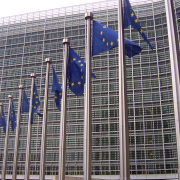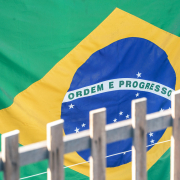Various regulation measures have recently been announced in the chemical industry across provinces including Jiangsu, Zhejiang, Shandong, Tianjin, Guangdong and Guangxi, which indicate the beginning of another round of reshuffling of the chemical industry from the second half of 2018.
Jiangsu Province
1. Coastal chemical parks are to be shut down, relocated, upgraded or restructured, which will then be subject to an organized completion acceptance from next August.
The Jiangsu Provincial Government has issued an action plan to conduct an overall regulation of coastal chemical parks, including all chemical parks and chemical productions in the coastal cities of Nantong, Lianyungang and Yancheng.
The action plan has specified the steps and timeline of action to be taken, requesting the coastal cities of Nantong, Lianyungang and Yancheng to complete the identification of problems by the end of this July and to work out a regulation program by this August-end. The action period will be from September 2018 to August 2019, followed by completion acceptance in August 2019.
2. Changzhou city: Begins on August 3. Chemical productions will be shut down or reduced.
The production load of Changzhou Bangjie Chemical, Changzhou Yabang Pharmaceutical Ltd and Haixiang Chemical Industry Ltd will be reduced by 50%, while other factories will be subject to reduced production or a shutdown to a certain extent.
3. Off-peak production or production curtailment may be extended to 80 cities.
The high emission restricted region will not be limited only to Beijing, Tianjin and Hebei areas. One city and three provinces of the Yangtze Delta, as well as Fenhe-Weihe Plain will also be included in the restricted region. Thus, the number of affected cities will increase from “2+26” to 80.
Therefore, the high emission restricted region has included the city of Shanghai, provinces of Jiangsu, Zhejiang and Anhui. Meanwhile, the number of cities in Heibei, Henan and Shanxi, which falls into the high emission restricted region, will increase from eight, seven and four respectively to nine each in Heibei and Henan, and eight in Shanxi.
Lianyungang city: Recently, the Lianyungang Municipal Government issued a notification requiring an overall knockout of outdated chemical production, as well as the implementation of a comprehensive control of pollution from chemical productions, involving the chemical portion of Guanyun Near-Port Industrial Zone, Lianyungang Chemical Park, Ganyu Zhewang Near-Port Industrial Zone and Lianyungang Petrochemical Base and all its chemical productions.
The requirement sets out a timeline as well. The actioning period will be from September 2018 to August 2019, followed by the completion acceptance in September 2019.
Shandong Province
After an overall regulation, no more than 75 comprehensive industrial parks and 10 industry-dedicated industrial parks will remain. With regard to the existing industrial parks, which are not reaffirmed or not qualified, no chemical production projects should be launched or extended whatsoever.
Guangdong Province
The regulation measures recently taken over chemical productions in Guangdong include:
1. Strict control of the establishment of chemical parks and enhancement of regulation of existing chemical parks; formulation of the staff resettlement program and kickoff of the relocation of Sinopec Guangzhou.
2. Circular production-targeted renovation of 100 industrial parks to be promoted by 2020 to build a national circular production pilot park.
3. Checking and regulation of decentralized and polluted productions: to complete the regulation of decentralized and polluted productions in the city outskirts, industrial clusters and rural industrial zones by the end of 2018; to basically complete regulation of decentralized and polluted production within the province by the end of September 2019; to organize a spot check of results of regulation of decentralized and polluted productions in 2020.
Jiangxi Province
Jiangxi Province has endeavored to crack down the illegal discharge of industrial waste water, requesting that enterprises involving water pollutants discharge must build a sewage treatment facility to treat waste water according to the approved environmental impact assessment. Waste water is discharged only after being treated up to the discharge standard as approved. The waste water discharge outlet of factories in the industrial parks should be designed to technical specifications. In principle, one factory shall have only one discharge outlet, which is in principle located at the boundary line of the factory. Waste water produced from factories is required to be sent, through an open channel to the discharge outlet.
Source: www.agropages.com


